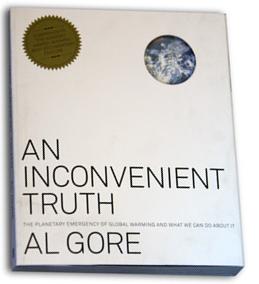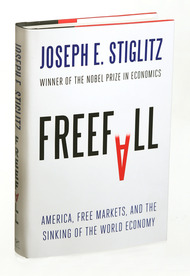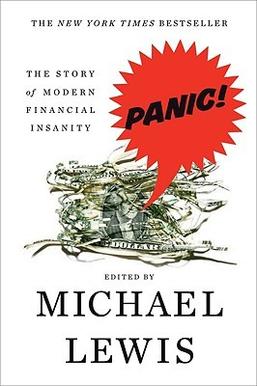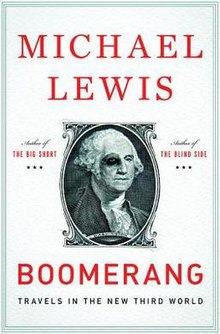
Joseph Eugene Stiglitz is an American New Keynesian economist, a public policy analyst, political activist, and a professor at Columbia University. He is a recipient of the Nobel Memorial Prize in Economic Sciences (2001) and the John Bates Clark Medal (1979). He is a former senior vice president and chief economist of the World Bank. He is also a former member and chairman of the US Council of Economic Advisers. He is known for his support for the Georgist public finance theory and for his critical view of the management of globalization, of laissez-faire economists, and of international institutions such as the International Monetary Fund and the World Bank.

A country's gross government debt is the financial liabilities of the government sector. Changes in government debt over time reflect primarily borrowing due to past government deficits. A deficit occurs when a government's expenditures exceed revenues. Government debt may be owed to domestic residents, as well as to foreign residents. If owed to foreign residents, that quantity is included in the country's external debt.

Michiko Kakutani is an American writer and retired literary critic, best known for reviewing books for The New York Times from 1983 to 2017. In that role, she won the Pulitzer Prize for Criticism in 1998.

Michael Monroe Lewis is an American author and financial journalist. He has also been a contributing editor to Vanity Fair since 2009, writing mostly on business, finance, and economics. He is known for his nonfiction work, particularly his coverage of financial crises and behavioral finance.

An Inconvenient Truth: The Planetary Emergency of Global Warming and What We Can Do About It is a 2006 book by Al Gore released in conjunction with the film An Inconvenient Truth. It is published by Rodale Press in Emmaus, Pennsylvania, in the United States.
A sovereign default is the failure or refusal of the government of a sovereign state to pay back its debt in full when due. Cessation of due payments may either be accompanied by that government's formal declaration that it will not pay its debts (repudiation), or it may be unannounced. A credit rating agency will take into account in its gradings capital, interest, extraneous and procedural defaults, and failures to abide by the terms of bonds or other debt instruments.

The Great Recession was a period of market decline in economies around the world that occurred from late 2007 to mid-2009. The scale and timing of the recession varied from country to country. At the time, the International Monetary Fund (IMF) concluded that it was the most severe economic and financial meltdown since the Great Depression.

The Icelandic financial crisis was a major economic and political event in Iceland between 2008 and 2010. It involved the default of all three of the country's major privately owned commercial banks in late 2008, following problems in refinancing their short-term debt and a run on deposits in the Netherlands and the United Kingdom. Relative to the size of its economy, Iceland's systemic banking collapse was the largest of any country in economic history. The crisis led to a severe recession and the 2009 Icelandic financial crisis protests.

The Big Short: Inside the Doomsday Machine is a nonfiction book by Michael Lewis about the build-up of the United States housing bubble during the 2000s. It was released on March 15, 2010, by W. W. Norton & Company. It spent 28 weeks on The New York Times best-seller list, and was the basis for the 2015 film of the same name.
Stephen Grosz is a British psychoanalyst and author.

The 2007–2008 financial crisis, or the global financial crisis (GFC), was the most severe worldwide economic crisis since the 1929 Wall Street crash that began the Great Depression. Causes of the crisis included predatory lending in the form of subprime mortgages to low-income homebuyers and a resulting housing bubble, excessive risk-taking by global financial institutions, and lack of regulatory oversight, which culminated in a "perfect storm" that triggered the Great Recession, which lasted from late 2007 to mid-2009. The financial crisis began in early 2007, as mortgage-backed securities (MBS) tied to U.S. real estate, as well as a vast web of derivatives linked to those MBS, collapsed in value. Financial institutions worldwide suffered severe damage, reaching a climax with the bankruptcy of Lehman Brothers on September 15, 2008, and a subsequent international banking crisis.

Ruchir Sharma is an author, fund manager and columnist for the Financial Times. He is the head of Rockefeller Capital Management's international business, and was an emerging markets investor at Morgan Stanley Investment Management.

David Meyer Wessel is an American journalist and writer. He has shared two Pulitzer Prizes for journalism. He is director of the Hutchins Center on Fiscal & Monetary Policy at the Brookings Institution and a contributing correspondent to The Wall Street Journal, where he worked for 30 years. Wessel appears frequently on National Public Radio's Morning Edition.

The European debt crisis, often also referred to as the eurozone crisis or the European sovereign debt crisis, was a multi-year debt crisis that took place in the European Union (EU) from 2009 until the mid to late 2010s that made it difficult or impossible for some countries in the euro area to repay or refinance their government debt without the assistance of third parties.

The euro area crisis, often also referred to as the eurozone crisis or the European sovereign debt crisis, was a multi-year debt crisis that took place in the European Union (EU) from 2009 until the mid to late 2010s. Several eurozone member states were unable to repay or refinance their government debt or to bail out over-indebted banks under their national supervision without the assistance of other eurozone countries, the European Central Bank (ECB), or the International Monetary Fund (IMF).

The eurozone crisis, also known as the European sovereign-debt crisis, was a financial crisis that made it difficult or impossible for some countries in the euro area to repay or re-finance their government debt.

The proposed long-term solutions for the Eurozone crisis address ways to deal with the European debt crisis that took place in the European Union from 2009 till the late 2010s, including risks to Eurozone country governments and the Euro.

Freefall: America, Free Markets, and the Sinking of the World Economy is a book on the causes and consequences of the Great Recession by economist and Nobel laureate Joseph E. Stiglitz, first published in 2010 by W. W. Norton & Company. While focusing on the roots of the financial crisis of 2007–2008 and the subsequent global economic slowdown, which he claims to find mainly in fiscal policy as conducted during the Bush presidency and decisions made by the Federal Reserve, Stiglitz also talks about the failure to cope with the recession during the months succeeding the Wall Street Crash of 2008. Finally, he sketches various schemes as to the possible future of the American economy, vigorously proposing a profound policy shift. In compliance with Stiglitz's general attitude towards economic policy, Freefall contains "proposals to tame the banking sector and to foster a more humanistic style of capitalism in the United States and abroad." According to an assessment written by Larry Elliott for The Guardian, the book "reeks of 'I told you so'." because during the years preceding the crisis, Stiglitz had "warned policy makers repeatedly that the United States was headed toward a deep, painful recession if pre-emptive interventions were not made."

Panic: The Story of Modern Financial Insanity is a non-fiction book edited by Michael Lewis about the most important and severe upheavals in past financial history. The book, a collection of articles and essays, was published on November 2, 2009, by W. W. Norton & Company. The text, Lewis writes, is an effort "to recreate the more recent financial panics, in an attempt to show how financial markets now operate."
The Swiss sovereign money initiative of June 2018, also known as Vollgeld, was a citizens' (popular) initiative in Switzerland intended to give the Swiss National Bank the sole authority to create money.















